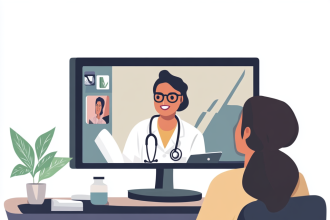As first reported by MedTech Insights, a new partnership between healthtech firm Skin Analytics and GP federation Together First is bringing the AI-powered skin cancer detection tool DERM to primary care in Barking & Dagenham. This marks the first time the technology, already used in NHS secondary care settings, will be deployed in North East London’s frontline GP services—providing faster and more accurate skin assessments to over 200,000 residents.

Source: skin-analytics.com.
DERM offers fast, accurate, and autonomous assessments
DERM is a CE-marked, autonomous AI platform capable of analysing moles and skin lesions for cancer without a physician’s input, boasting 99.8% accuracy—higher than the average diagnostic rate for dermatologists. By embedding DERM into Barking Community Hospital’s diagnostic centre, patients can now bypass traditional GP appointments and lengthy specialist referrals, instead booking scans directly online for faster triage.
Addressing a national challenge with scalable innovation
The rollout comes at a time when urgent skin cancer referrals have surged by 170% in the past decade across the UK, with many patients waiting weeks or months for potentially life-saving assessments. With a critical shortage of dermatologists, tools like DERM are helping to alleviate system strain by prioritizing high-risk patients and reducing unnecessary in-person appointments by up to 95%.
A collaborative model for the future of care
According to Craig Nicolic of Together First, the borough’s high care demand and limited specialist access made this AI-driven approach both timely and essential. CEO of Skin Analytics Neil Daly reinforced the human impact: “This is about ensuring people get care when they need it—not waiting in limbo.” With over 145,000 NHS patients already assessed and 14,000 cancers detected via DERM, the technology continues to prove its clinical and operational value.
By integrating DERM into local diagnostic hubs, Barking & Dagenham is setting a new precedent for AI-powered cancer detection in primary care. As Med-Tech Insights highlighted, this partnership not only brings critical diagnostics closer to patients but also showcases how intelligent systems can transform care pathways amid growing healthcare pressures.





